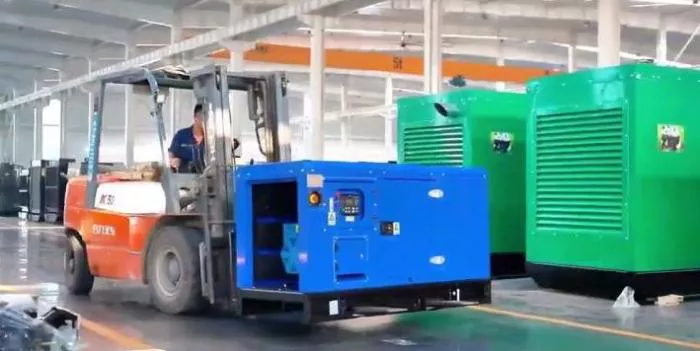Accidentally putting diesel fuel into a gasoline generator is a serious mistake that can lead to significant issues. Understanding the consequences of this error can help prevent potential damage and ensure proper maintenance of your equipment. This article explores what happens when diesel is put into a gasoline generator, the resulting problems, and the steps you should take to address the issue.
Immediate Effects of Diesel in a Gas Generator
Fuel System Contamination
Diesel fuel is much thicker and more viscous than gasoline. When diesel is added to a gasoline generator, it contaminates the fuel system. This can lead to clogs in the fuel lines, filters, and injectors. The viscosity of diesel prevents it from flowing properly through the system designed for gasoline, potentially causing blockages and reducing fuel efficiency.
Engine Performance Issues
Gasoline engines are specifically designed to run on gasoline, which has different combustion characteristics compared to diesel. Diesel fuel in a gasoline engine can cause several performance issues:
Hard Starting: Diesel fuel may make the engine difficult to start because it does not ignite as easily as gasoline. The engine may crank but fail to start, or it may start intermittently.
Poor Combustion: Diesel fuel does not burn as cleanly or completely in a gasoline engine. This can lead to rough idling, sputtering, or stalling.
Increased Smoke: The incomplete combustion of diesel fuel can result in excessive smoke coming from the exhaust, often appearing as black or gray smoke.
Potential Engine Damage
Running a gasoline engine on diesel can cause internal damage over time. The following issues may arise:
Engine Knock: Diesel fuel’s higher ignition temperature can cause knocking or pinging in a gasoline engine. This knocking occurs when fuel ignites prematurely in the engine, potentially leading to severe damage.
Increased Wear: Diesel fuel can cause excessive wear on engine components designed for gasoline. The fuel may not lubricate as effectively, leading to accelerated wear and tear.
Damage to Spark Plugs: The incorrect combustion of diesel fuel can foul spark plugs, reducing their effectiveness and potentially causing misfires.
Steps to Take If Diesel Is Added to a Gasoline Generator
Stop Using the Generator
If you realize that diesel has been added to your gasoline generator, stop using it immediately. Continuing to run the generator can exacerbate the problems and cause further damage to the engine.
Drain the Fuel System
To address the issue, you need to remove the contaminated fuel from the system:
Drain the Fuel Tank: Carefully drain the fuel tank to remove the diesel fuel. Ensure you dispose of the contaminated fuel properly, following local regulations.
Flush the Fuel Lines: After draining the tank, flush the fuel lines and fuel pump to remove any remaining diesel. You may need to use a fuel system cleaner or solvent designed for this purpose.
Replace Fuel Filters
Diesel fuel can clog fuel filters, so it is essential to replace them after draining the contaminated fuel. Install new filters to ensure that any remaining diesel is removed from the system and to prevent future problems.
Inspect and Repair
Once the fuel system has been cleaned and the filters replaced, inspect the generator for any signs of damage. If you notice any issues with engine performance or components, consult a professional technician for a thorough inspection and repair.
Refill with Gasoline
After cleaning the system and making any necessary repairs, refill the tank with the correct type of gasoline. Ensure that the generator is properly maintained and serviced to prevent similar issues in the future.
Preventing Future Mistakes
Proper Fuel Handling
To avoid the mistake of putting diesel in a gasoline generator, follow these guidelines:
Label Fuel Containers: Clearly label fuel containers to distinguish between gasoline and diesel. This helps prevent accidental mixing.
Use Proper Storage: Store diesel and gasoline in separate containers to minimize the risk of cross-contamination.
Educate Users: Ensure that everyone who handles the generator is aware of the correct fuel type and the consequences of using the wrong fuel.
Regular Maintenance
Regular maintenance of your generator can help prevent fuel-related issues:
Inspect Fuel System: Periodically check the fuel system for signs of contamination or wear. Address any issues promptly to maintain optimal performance.
Service the Generator: Follow the manufacturer’s recommended maintenance schedule, including fuel system checks and filter replacements.
Conclusion
Putting diesel fuel into a gasoline generator can lead to significant problems, including fuel system contamination, engine performance issues, and potential damage. If you accidentally add diesel to your generator, it is crucial to stop using it immediately, drain the contaminated fuel, and clean the fuel system. Replacing filters and inspecting for damage are essential steps to ensure the generator is restored to proper working condition. Preventing future mistakes involves proper fuel handling, clear labeling, and regular maintenance. By following these guidelines, you can protect your generator from damage and ensure its reliable operation.

